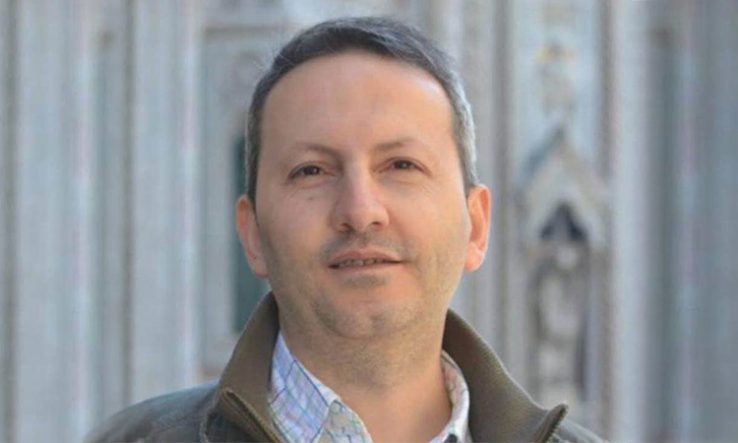
Alma mater of Swedish-Iranian researcher Ahmadreza Djalali warns of ‘signals’ his execution may be imminent
Academic organisations have sounded the alarm over reports that Ahmadreza Djalali, a Swedish-Iranian researcher sentenced to death in Iran, has contacted his wife and said he expects his sentence to be carried out imminently.
According to the Swedish newspaper Expressen, Djalali (pictured before his arrest) told his wife, Vida Mehrannia, on the morning of 24 November that he expected to be moved to detention elsewhere in Iran and that his death penalty would be carried out “shortly”. Research Professional News has contacted the Iranian government for comment.
Stockholm’s Karolinska Institute, where Djalali studied for his PhD before moving on to roles at the Università degli Studi del Piemonte Orientale in Italy and Vrije Universiteit Brussel in Belgium, said it was working with the non-governmental organisation Amnesty International and the Swedish member of parliament Lars Adaktusson to try to get more information.
“If the signals are correct, it is extremely concerning. We must act forcefully and jointly to ensure that the death sentence for Ahmadreza Djalali is not carried out,” said the institute’s president, Ole Petter Ottersen.
In a tweet, Amnesty said it was “horrified to learn” the Iranian authorities have called for Djalali’s death sentence to be carried out “no later than a week from 24 November”.
Djalali was arrested in April 2016 on charges of spying after accepting an invitation from the public University of Tehran to give a talk there on his specialism of disaster medicine. He has previously been moved into solitary confinement without warning, and Ottersen said Djalali “has been confined in appalling conditions” and is reportedly “in very poor physical health”.
The non-governmental organisation Scholars at Risk urged the Iranian authorities to release Djalali immediately, and joined the European University Association in urging politicians and academic leaders to pressure their governments and Iranian officials for his protection.